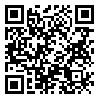Volume 11, Issue 1 (January-February 2012)
Payesh 2012, 11(1): 117-125 |
Back to browse issues page
Download citation:
BibTeX | RIS | EndNote | Medlars | ProCite | Reference Manager | RefWorks
Send citation to:



BibTeX | RIS | EndNote | Medlars | ProCite | Reference Manager | RefWorks
Send citation to:
Mohammad Taghi Karoubi, Mohammad Mahdi Akhondi, Arash Mohazab, Zoobin Nasiri Mahalati. International legal tools to regulate scientific activities in the field of human cloning. Payesh 2012; 11 (1) :117-125
URL: http://payeshjournal.ir/article-1-491-en.html
URL: http://payeshjournal.ir/article-1-491-en.html
Abstract: (5404 Views)
Objective(s): Following successful trials in cloned mammalians and possibility of human cloning in near future different ethical, legal and religious views have emerged, therefore legal intervention needs to regulate related scientific studies. In different legal systems various laws have been approved in order to prohibit or restrict different aspects of human cloning. This paper is design to study and analyze the measures have been took by international law to regulate scientific aspects of human cloning and bring about most effective international mechanisms to implement in this field.
Methods: This study is a descriptive review and analyzing of library databases. Section 1 includes definition of human cloning from medical and biological point of view and section 2 of this paper examines international law documents regarding human cloning.
Results: A review of some of the attempts of international organizations reveals that the current legal documents concerning human cloning are mainly non-binding and commendatory. Moreover, the widespread attempts by international community achieved no result to ratify a global convention on the issue.
Conclusion: Resort to some material sources of international law such as treaties and judicial decision do not suffice to meet the related issues on human cloning and its governance, therefore the custom as an old mechanism of international law should still be applied. There is a view that international custom may still have a significant role to play as dynamic source of fresh rules of international law where international community undergoes change in new areas untouched by treaties, judicial decision. In this regard, the present authors discuss that Iranian government can play a significant role to formulate and reinforce the international customary law on human cloning.
Keywords: Reproductive Cloning, Therapeutic cloning, International custom, International resolutions
type of study: Descriptive |
Accepted: 2011/02/27 | ePublished ahead of print: 2011/12/3 | Published: 2012/01/15
Accepted: 2011/02/27 | ePublished ahead of print: 2011/12/3 | Published: 2012/01/15
| Rights and Permissions | |
 |
This work is licensed under a Creative Commons Attribution-NonCommercial 4.0 International License. |





